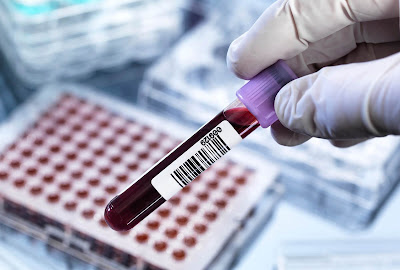Cancer Biomarkers Are Commonly Used For Diagnosing And Treating Patients With The Disease.
 |
| Cancer Biomarkers |
Cancer Biomarkers are substances or processes that indicate the existence of cancers in the human body and are assessed through the collection of samples such as faeces, tumour tissue, blood, urine, and other tissues or bodily fluids. Cancer Biomarkers are substances produced by cancer tissue or by other cells in the body in reaction to the presence of cancer. They use genomes and proteomics to improve cancer detection and ease high-speed noninvasive diagnosis. Biomarkers offer a wide range of potential uses in cancer, including risk assessment, screening, differential diagnosis, prognosis, therapy response prediction, and disease progression tracking, among others.
Cancer Biomarkers are biological chemicals created by tumour cells or human tissues in response to cancer, which are then quantified and analysed as signs of malignant activities in the body. Cancer Biomarkers are commonly used to diagnose and treat cancer patients. In cancer patients who have had curative surgery, biomarkers are employed in follow-up surveillance and early detection of suspected recurring disease. In addition, molecular biomarkers are being included into routine diagnostic tests as part of ongoing breakthroughs in cancer diagnosis. Various governments are concentrating their efforts on cancer prevention and early intervention in order to lessen the emotional and physical toll cancer takes on patients and their families. Furthermore, governmental health-care agencies are actively involved in cancer research and development.
The global cancer biomarkers market was valued at US$ 11.6 billion in 2017 and is expected to witness a CAGR of 14.2% over the forecast period (2017–2025).
Cancer Biomarkers are biological molecules created in response to cancer by tumour cells or human tissues, which are subsequently analysed and examined as indicators of malignant activities in the body. Cancer biomarkers are widely employed in the detection and treatment of cancer patients. In patients, having undergone curative surgery for cancer, biomarkers are employed in follow-up surveillance and for early detection of possible recurring disease. Furthermore, the use of molecular biomarkers as part of normal diagnostic testing is a constant advancement in cancer diagnosis. The utilisation of DNA, RNA, microRNAs, and proteins in cancer detection involves molecular changes.
Investing in cancer prevention and early intervention is a priority for governments around the world, as it reduces the emotional and physical effect of cancer on patients and their families. Furthermore, governmental healthcare departments are actively involved in cancer research and therapy development. The rising incidence of cancer is predicted to spur innovation and advancement in the field of biomarker-based cancer diagnostics.
In the field of cancer diagnostics, epigenetics has acquired universal support. Many players are performing substantial research in order to produce biomarkers and cancer-targeting medications by analysing important epigenetic alterations connected to cancer. This segment is predicted to grow due to increased collaboration between pharmaceutical companies for the development of new drugs that target epigenetic biomarkers.
The global cancer biomarkers market was valued at US$ 11.6 billion in 2017 and is expected to witness a CAGR of 14.2% over the forecast period (2017–2025).
Cancer Biomarkers are biological molecules created in response to cancer by tumour cells or human tissues, which are subsequently analysed and examined as indicators of malignant activities in the body. Cancer biomarkers are widely employed in the detection and treatment of cancer patients. In patients, having undergone curative surgery for cancer, biomarkers are employed in follow-up surveillance and for early detection of possible recurring disease. Furthermore, the use of molecular biomarkers as part of normal diagnostic testing is a constant advancement in cancer diagnosis. The utilisation of DNA, RNA, microRNAs, and proteins in cancer detection involves molecular changes.
Investing in cancer prevention and early intervention is a priority for governments around the world, as it reduces the emotional and physical effect of cancer on patients and their families. Furthermore, governmental healthcare departments are actively involved in cancer research and therapy development. The rising incidence of cancer is predicted to spur innovation and advancement in the field of biomarker-based cancer diagnostics.
In the field of cancer diagnostics, epigenetics has acquired universal support. Many players are performing substantial research in order to produce biomarkers and cancer-targeting medications by analysing important epigenetic alterations connected to cancer. This segment is predicted to grow due to increased collaboration between pharmaceutical companies for the development of new drugs that target epigenetic biomarkers.



Comments
Post a Comment